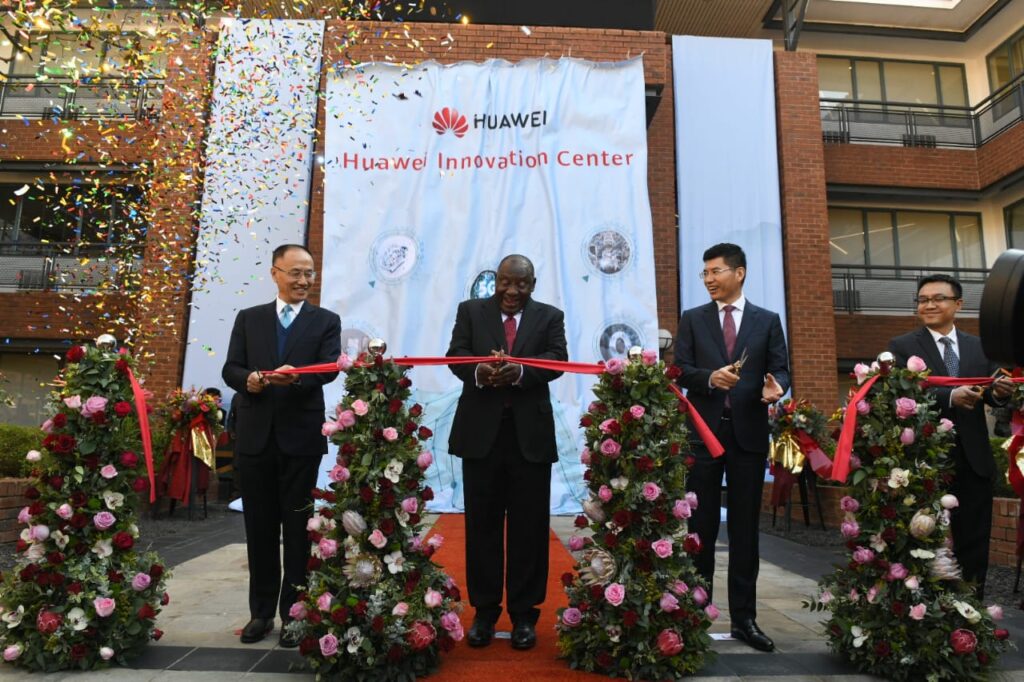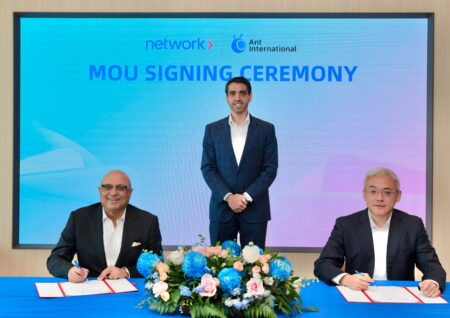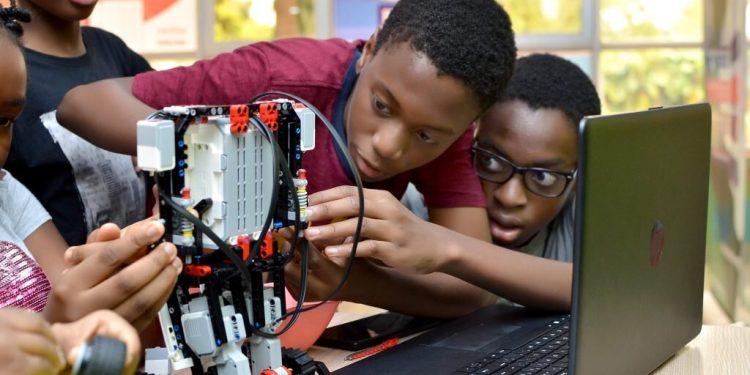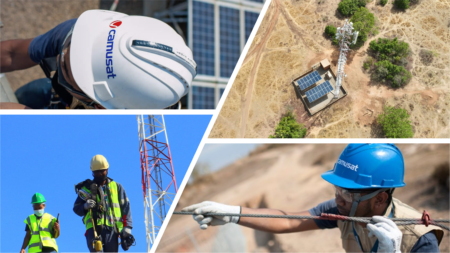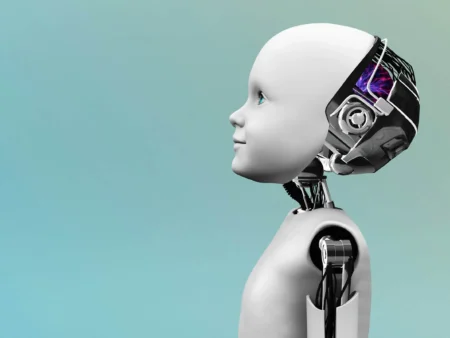- Huawei makes up almost 70 per cent of 4G networks across different African regions.
- Beijing avidly supported and assisted the government’s fight against apartheid in South Africa.
- US lawmakers have criticized South Africa for its ties with China and have cautioned that its telecommunication systems pose significant issues to security.
Africa is undergoing a digital transformation, steadily redefining its global economic standpoint. Numerous organizations like Visa, IBM, and Microsoft have significantly increased their presence within Africa. In the past two decades, several events, startup accelerator programs, and other projects have propelled the adoption rate of new technology.
In recent news, Africa’s mobile industry has gained another milestone as Huawei set up its South African base. South African President Cyril Ramaphose presided over the opening of a new Huawei Innovation Centre in Johannesburg. This new establishment sets South Africa a step ahead of its peers to become Africa’s tech hub.
The new Huawei Innovation Centre
The Global North has shunned the Chinese technological giant Huawei due to privacy and security issues. Its operation has undergone numerable scrutiny in the US, Uk, and significant European Union Countries. Nonetheless, the company has played a significant role in propelling Africa’s mobile industry.
Huawei makes up almost 70 per cent of 4G networks across different regions throughout the continent. As such, it has played a significant role in Africa’s digital transformation through its various establishments. Among its many endeavors within the country, it has gone beyond Africa’s mobile industry and is a vital player in establishing multiple telecommunication posts.
South Africa remains a significant partner of the Chinese technology giant and has collaborated with its government to establish a new Huawei Innovation Venture. The launch of this new project places the country a step ahead in its quest to dominate Africa’s mobile industry.
Read: Chinese telco Huawei to promote South African digital talent.
A further partnership between China and South Africa
South Africa’s president attended the center launch alongside Chinese Ambassador Chen Xiaodong and the president of Huawei Africa, Leo Chen. While touring the Huawei innovation center, Ramaphosa underscored the crucial role of expanding digital infrastructure.
“For South Africa, expanding digital infrastructure is one of the primary engines of economic growth. The development of information technology is key to the competitiveness of our economy. Adopting Huawei’s new technologies will help Africa leapfrog into the Fourth Industrial Revolution.“
South Africa and China have collaborated closely to establish a digital foothold in Africa and deal with political issues. Beijing avidly supported and assisted the government’s fight against apartheid in South Africa. Furthermore, both regions are BRICS members, encompassing; Brazil, Russia, India, China, and South Africa. Due to this, both countries have taken active roles in aiding the success of their collaboration.
Ramaphosa added, “President Xi Jinping described science and technology as a primary productive force, talent as a primary resource, and innovation as a primary driver of growth.’ This is a sentiment that we share.”
The Main Agenda of the Huawei Innovation Centre.
South Africa and Huawei collaborated to establish the Huawei Innovation Centre to cultivate, support, and utilize local talent. In the past two decades, Africa has proven its prowess to adopt and use new technology. During this period, emerging markets have developed due to the integration of new technology. The Huawei Innovation Hub will focus on knowledge and skill transfer to improve local talent.
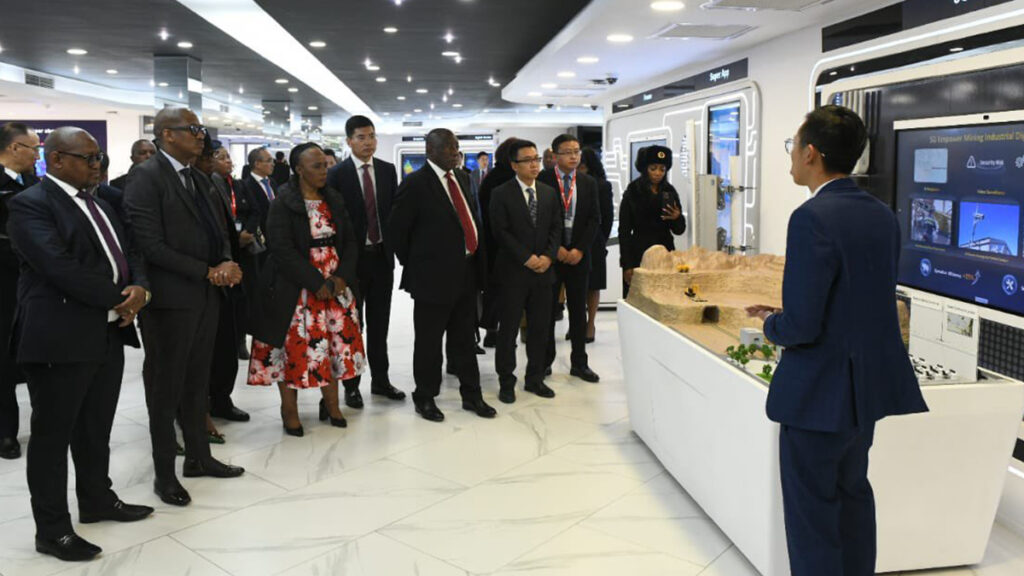
As a result, Africa’s mobile Industry has significantly grown, with businesses aiming for a broader and better digital presence. Skilled personnel are required to accommodate this new need. Thus the Chinese technology giant partnered to create the Huawei Innovation Centre to facilitate this growth and develop new innovators.
Read: MTN starts the process to develop 5G technology.
Strengthening external relations
According to Ambassador Chen, the Huawei Innovation Centre showcases how the Chinese private business sector is ready to take South Africa to the next step.
He added that the hub would provide an adequate environment to accelerate South Africa’s transition to 5G. Chen said, “We’ve been encouraged by the South African government’s strong vision for the digital economy. South Africa is becoming a role model for the continent. Furthermore, it sets a global stage in fields like 5G deployment and 5G-driven industrial digital transformation.”
The Huawei Innovation Hub comes at a curial point for South Africa. Since the beginning of 2023, the region has faced significant hurdles to increase its economic growth. Despite being Africa’s most industrialized country, it still has one of the highest unemployment rates.
The recent power outages have worsened the situation, and this project may aid in its recovery. Ramaphosa has stated that the Huawei Innovation Centre will help launch new local ICT enterprises. This will significantly aid in economic development and job creation. He further claimed that South Africa is open to more Huawei-based projects to invest in the continent’s data center and cyber security industries.
Heavy scrutiny falls on Africa’s association with Huawei
During the year, several regions have raised concerns over the relationship between Africa’s mobile Industry and Huawei. US lawmakers have criticized South Africa for its ties with China and have cautioned that its telecommunication systems pose significant issues to security.
Among its agenda for Africa’s digital transformation, Huawei initiated its Digital Silk Road project. This initiative is part of a larger plan to establish a foothold in Africa’s mobile industry. Huawei subsidiaries own 70% of all 4G networks across the region. In 2022, Hauweir launched a 5G network in Ethiopia to aid in its attempt to catch up to the transitioning world.
Read Africa: Scramble for digital payments solutions intensifies.
The China Foreign Ministry has criticized the warnings claiming that its an attempt to sabotage the good relation between both regions. A ministry spokesman said, “Chinese companies, including Huawei, have conducted mutually beneficial cooperation with many countries in Africa and the world beyond. We have contributed to the improvement of communications infrastructure, provided advanced, quality, safe and affordable services for the local people and won great support.“
Fortunately, the fact does not lie, Huawei’s efforts to advance the African network is real. Whether or not Huawei Innovation is a ploy is beside the question. The possiblites it prsents fro South Afrca is undebniable. Furthermore, it may even be the edge South Africa needs to lead Africa to a technological revolution.





